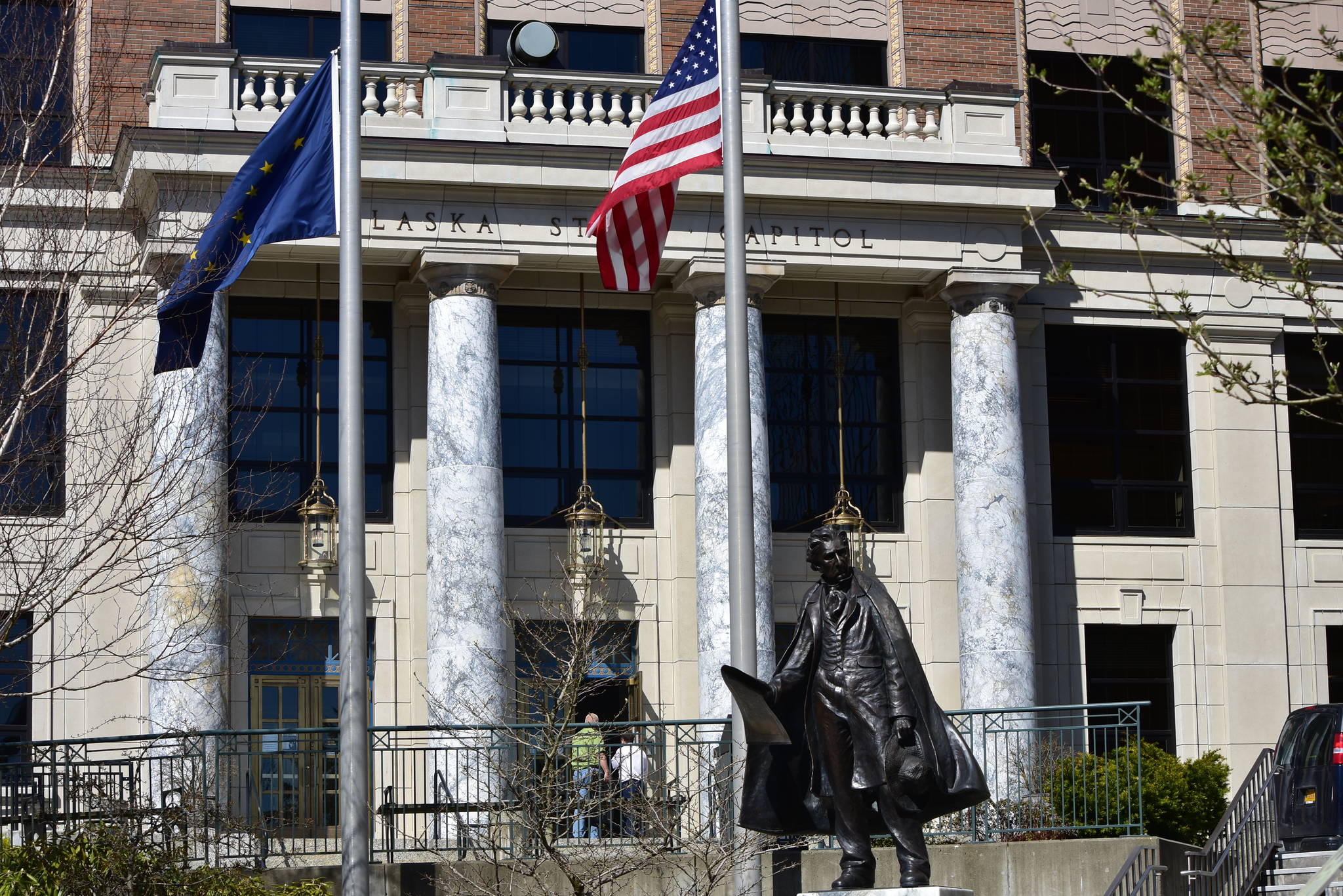Lawmakers expressed doubt Wednesday at the proposed start date for the next special session of the Alaska State Legislature but said they’d had discussions with Gov. Mike Dunleavy about changing the time frame of the next session.
“I know members are stretched to the limit,” said Sen. Lyman Hoffman, D-Bethel, co-chair of what is being called the Comprehensive Fiscal Plan Working Group, the result of an agreement between lawmakers at the end of the last special session.
Hoffman and other lawmakers expressed cautious optimism at the potential for the working group, meant to draft recommendations for a special session dedicated solely to resolving the state’s fiscal deficit. The governor set that session for Aug. 2, but Hoffman and Senate President Peter Micciche, R-Soldotna, both said they had discussed moving that date with the Dunleavy administration.
A second meeting of the work group wasn’t scheduled Wednesday, but Hoffman said he thought the group would have to meet at least twice a week. Several lawmakers expressed the desire to have multiple opportunities for public comment, allowing Alaskans to have direct input in the process.
“Public testimony is important to me; it’s important to my district,” said Rep. Kevin McCabe, R-Big Lake. “I’m a firm believer in compromise. I don’t think it means what some people think it means.”
[‘Time is running out’ lawmaker warns of state finances]
The group is the result of a written agreement signed at the end of a contentious budget process that nearly brought the state to a partial government shutdown. Lawmakers were able to pass enough elements of the budget to avoid a shutdown, but other critical elements still require lawmakers to vote. Funding for impactful programs including the Alaska Performance Scholarship and Power Cost Equalization fund remains within the state’s Constitutional Budget Reserve and requires a vote of three-quarters of the Legislature to access.
Those programs will continue to be unfunded until lawmakers vote to access those funds, and the University of Alaska announced last week it would continue to honor scholarships despite the budget impasse.
Minority lawmakers balked at the budget process, saying they were being pushed out. In exchange for the vote avoiding a government shutdown, House Speaker Louise Stutes, R-Kodiak, and House Minority Leader, Rep. Cathy Tilton, R-Wasilla, signed an agreement to create a working group with two representatives from each of the four caucuses.
Sen. Shelley Hughes, R-Palmer, said she hoped that all ideas would be heard and taken seriously and that in the past some proposals had been thrown out the window.
“This is serious stuff. We want to put forward a workable realistic package,” Hughes said.
A resolution to the state’s budget deficit has befuddled lawmakers for years with certain sectors of the government growing even as steep cuts are made in others. Legislative Finance Director Alexei Painter told lawmakers during a Senate Finance Committee the state had cut the University of Alaska budget by $70 million over three years but that the Department of Corrections had grown by the same amount.
Earlier this year a number of Republican lawmakers, including the governor, dropped a long-standing demand the state follow a statutory formula when allocating the Alaska Permanent Fund dividend and have supported a new “50-50” formula. That’s a proposal put forward by Dunleavy that would use half of the state’s draw from permanent fund earnings toward dividends and half toward state government.
Lawmakers in both parties have criticized that plan as relying too much on optimal financial conditions and still requiring the state to find new revenues. Coming to a mutual understanding of the state’s financial situation should be one of the first tasks, according to Sen. Jesse Kiehl, D-Juneau, one of the working group members.
“I’m not under the illusion that we’re going to come up with the magic solutions that’s eluded the state for the past seven years,” Kiehl said. “I think we owe it to people to take a very hard look (at state finances). We’re going to have to buckle down and do the really hard work.”
Some lawmakers still contend the state should pay PFDs using the statutory formula and only fund state services once that money is allocated.
But Wednesday lawmakers noted they have an entire 30-day special session dedicated to resolving the state’s fiscal deficit and said they were eager to produce substantive proposals.
“I look forward to participating and finding a compromise amongst some very disparate views,” said Rep. Ben Carpenter, R-Nikiski. “What do we want the state of Alaska to look like a generation from now?”
• Contact reporter Peter Segall at psegall@juneauempire.com. Follow him on Twitter at @SegallJnuEmpire.


